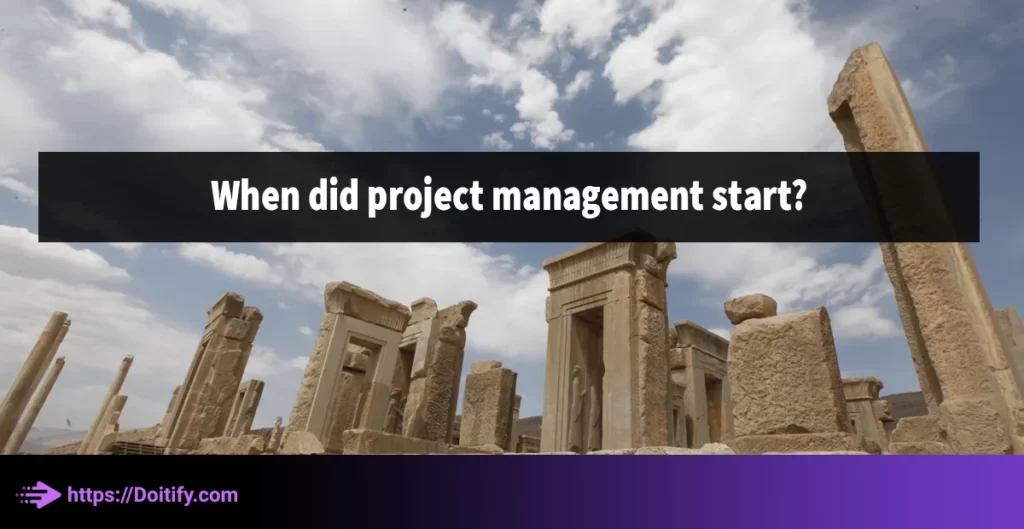When Did Project Management Start?
“In the realm of human endeavors, the pursuit of achieving goals has been a constant. From ancient civilizations erecting monumental structures to modern-day organizations launching innovative products, the ability to plan, organize, and execute complex projects has been essential for success. At the heart of this endeavor lies project management, a discipline that has evolved over millennia, adapting to the changing needs of society.”

Comprehensive Answer: When Did Project Management Start?
The Genesis of Project Management
While project management as we know it today is a relatively recent concept, its roots can be traced back to the earliest human endeavors. Archaeological evidence suggests that even ancient civilizations, such as the Egyptians and the Mesopotamians, employed rudimentary project management techniques to construct pyramids, temples, and irrigation systems. These early projects required careful planning, coordination, and resource allocation, demonstrating an understanding of the fundamental principles of project management.
The Rise of Industrial Revolution and Scientific Management
The Industrial Revolution marked a turning point in the evolution of project management. As factories emerged and manufacturing processes became more complex, the need for efficient project execution intensified. In the early 20th century, Frederick Winslow Taylor, a pioneer in the field of management, introduced the concept of scientific management, which emphasized the importance of breaking down tasks into smaller, manageable steps and optimizing workflows.
The Emergence of Project Management as a Discipline
The 20th century saw a growing recognition of project management as a distinct discipline. In 1917, Henry Gantt introduced the Gantt chart, a visual tool for planning and tracking project timelines. This innovation revolutionized project management by providing a clear and intuitive way to visualize project progress and identify potential bottlenecks.
The Post-War Era and the Development of Project Management Methodologies
The aftermath of World War II brought about a surge in large-scale engineering and construction projects, further propelling the development of project management methodologies. In 1957, the Project Management Institute (PMI) was established, providing a formal framework for the discipline and fostering the exchange of knowledge among project managers.
The Digital Age and the Rise of Technology-Driven Project Management
The advent of the digital age has transformed the landscape of project management, introducing a wave of technological advancements that have streamlined processes, enhanced collaboration, and improved data-driven decision-making. Project management software tools have become indispensable, providing project managers with centralized platforms for managing tasks, resources, communication, and risk mitigation.
Project Management Today: A Diverse and Evolving Field
Today, project management is a ubiquitous discipline, applicable to a wide range of industries, from construction and engineering to software development and healthcare. As organizations become increasingly complex and projects grow in scale and complexity, the demand for skilled project managers is at an all-time high.
The Future of Project Management: Embracing Innovation and Adaptability
The future of project management is promising, filled with opportunities for further innovation and adaptation. As technology continues to evolve, project management tools will become even more sophisticated and integrated, providing real-time insights and automating tasks to enhance efficiency.
Conclusion
From its humble beginnings in ancient civilizations to its current position as a critical discipline in the modern world, project management has evolved and adapted to meet the changing needs of society. As we look to the future, project management is poised to play an even more prominent role in driving innovation, optimizing processes, and achieving organizational goals.
Other Doitify pages on project management:
- Project Management Software
- Project Management Tool
- Construction Project Management Software
- Personal Project Management Tool
- Project Management Tool For Teams
- Project Management Tools For Small Teams
- Enterprise Project Management Tools
- Free Project Management Tools



